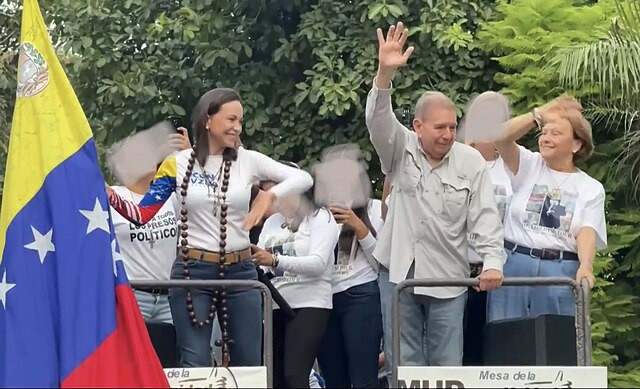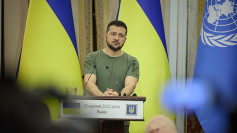In a dramatic escalation of Venezuela's political crisis, the Attorney General's office has issued an arrest warrant for opposition leader Edmundo González, amid fierce disputes over the results of the July presidential election. The warrant, announced by Attorney General Tarek Saab, accuses González of conspiracy, falsifying documents, and usurpation of powers, marking a significant intensification of the government's crackdown on dissent.
The arrest warrant represents a critical juncture in the ongoing controversy surrounding the July 28 election, in which both the ruling party and opposition claim victory. President Nicolás Maduro's government, supported by the National Electoral Council and the Supreme Tribunal of Justice, declared Maduro the winner with just over half the vote. However, opposition figures and international observers have raised serious concerns about the transparency and integrity of the electoral process.
González, a former diplomat and the opposition's presidential candidate, has been accused of multiple crimes related to the election. Saab shared the warrant through a Telegram message, citing González's alleged role in conspiring against the state and falsifying public documents. The warrant follows González's failure to respond to three summonses issued by the prosecutor's office, a factor that has only fueled tensions between the government and the opposition.
Prosecutors have centered their investigation on the tally sheets, or actas, which are crucial for verifying election results in Venezuela. The opposition has managed to obtain and publish tally sheets from more than 80% of the voting machines, suggesting that González won a significant majority of the votes. This publication has been met with accusations of fraud from the government, which has yet to release detailed vote counts due to a claimed cyber attack on its website.
Maduro's administration has been adamant in its refusal to accept the opposition's results. In a broadcast on state television, Maduro denounced González for allegedly disregarding Venezuelan laws and ordered his arrest as part of the broader effort to quash opposition dissent. "This man has the nerve to say he doesn't recognize laws, he doesn't recognize anything. What's up with that?" Maduro said. "Citizens agree that laws have to work and that officials do their job."
The opposition, alongside several Western nations and international bodies, has criticized the election as fraudulent and demanded the release of full vote tallies. María Corina Machado, another prominent opposition leader, condemned the warrant as a tactic to consolidate power and stifle dissent. "Threatening the President-elect will only achieve more cohesion and increase the support of Venezuelans and the world for Edmundo González," Machado stated on X.
The Venezuelan government's recent actions against opposition figures are part of a broader pattern of repression following the election. The national assembly, controlled by Maduro's party, has enacted stricter regulations on NGOs and unions, and there have been reports of forced resignations of state employees with pro-opposition views. Additionally, the U.S. has prepared a list of Venezuelan officials who may face sanctions in response to these developments.
The situation has been further complicated by the Biden administration's actions. Recently, the U.S. confiscated an aircraft used by Maduro, citing violations of U.S. sanctions. The Venezuelan government has denounced this move as an act of "piracy," reflecting the growing international tensions surrounding Venezuela's political crisis.
González, who turned 75 last week, has largely remained out of the public eye since the election. His spokesperson has not yet commented on the arrest warrant, and it remains unclear how the opposition will respond to the escalating crackdown. Legal experts note that under Venezuelan law, individuals over the age of 70 are typically subject to house arrest rather than imprisonment, which may impact González's legal situation.






